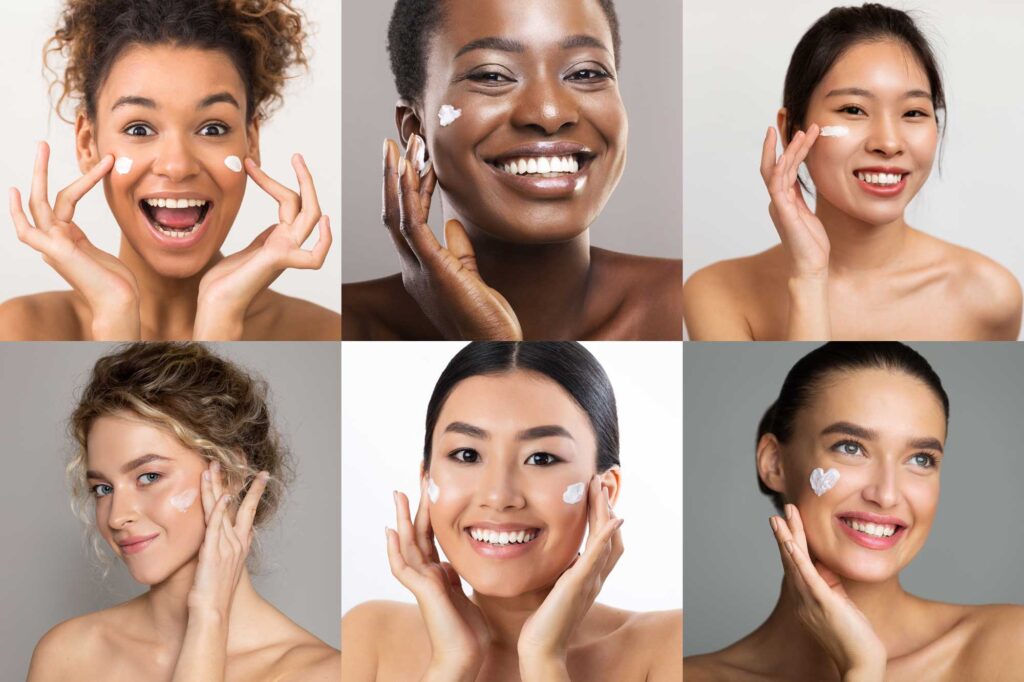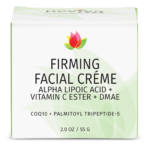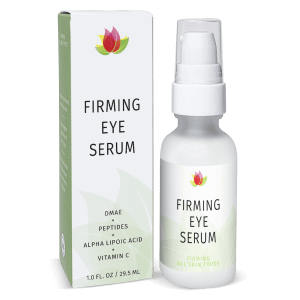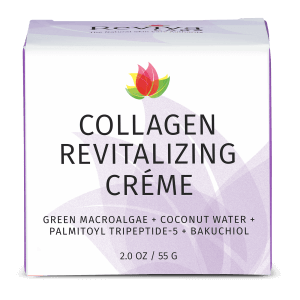Skin Care
What’s the research supporting “inflammaging” or skin aging caused by long-term inflammation?
Inflammaging, a term coined to describe the chronic, low-grade inflammation that contributes to the aging process, particularly in relation to skin health, has garnered significant attention in recent years. This phenomenon is characterized by persistent inflammation that not only accelerates the aging of the skin—manifesting as wrinkles, loss of elasticity, and hyperpigmentation—but also plays a pivotal role in various age-related diseases, including Alzheimer’s disease and cardiovascular conditions. Research suggests that factors such as poor diet, high stress, and genetic predisposition exacerbate this inflammatory state, leading to structural damage in the skin’s extracellular matrix and impairing its overall function.
As the immune system ages and becomes less efficient—a process known as immunosenescence—the body experiences an accumulation of inflammatory cytokines, such as interleukin-6 (IL-6) and tumor necrosis factor-alpha (TNF-±), which further aggravate the effects of skin aging. The resulting cycle of inflammation disrupts normal cellular functions, leading to cellular senescence and a decline in the skin’s regenerative capabilities. Increasing evidence from dermatological studies underscores the importance of addressing inflammaging for effective skincare strategies, highlighting its relevance in preventing and treating age-related skin conditions.
Despite its recognition in the scientific community, the concept of inflammaging has sparked controversies regarding its implications for overall health and longevity. Critics point to the complex interplay of various factors contributing to chronic inflammation, suggesting that the relationship is not fully understood and requires further investigation. Moreover, the growing popularity of the term in the skincare industry has raised concerns about potential misinformation and the promotion of unverified products aimed at combating inflammation.
Future research is poised to explore potential interventions aimed at mitigating the effects of inflammaging, with promising strategies including dietary modifications, exercise, and the development of topical treatments targeting inflammatory pathways. As the field advances, the discourse around inflammaging is expected to evolve, offering new insights into its impact on skin health and overall aging processes, while emphasizing the necessity for rigorous scientific validation in therapeutic claims.
Mechanisms of Inflammaging
Inflammaging refers to the chronic, low-grade inflammation that significantly con- tributes to the aging process and age-related skin pathologies. This condition is characterized by a continuous state of inflammation that can lead to various detrimental effects on skin health, including collagen breakdown, loss of elasticity, and increased signs of aging such as wrinkles and hyperpigmentation.
Evidence Supporting Inflammaging
The concept of inflammaging has garnered significant attention in recent years, particularly due to its implications for skin aging and overall health. Defined as chronic, low-grade inflammation that accelerates the aging process, inflammaging affects not just the skin but also plays a crucial role in various age-related diseases, including Alzheimer’s disease. Scholars such as Campisi and Zhang have been pivotal in establishing a deeper understanding of this phenomenon, highlighting its intricate relationship with cellular senescence and chronic inflammation.
Mechanisms of Inflammaging
Research has shown that as individuals age, the immune system’s ability to regulate inflammatory responses diminishes. This decline leads to the accumulation of low-grade inflammation, which is characterized by elevated levels of pro-inflammatory cytokines, such as interleukin-6 (IL-6). These cytokines contribute to various age-related pathologies, affecting skin integrity by degrading essential components like collagen and hyaluronic acid, thereby resulting in wrinkles and loss of elasticity.
Moreover, inflammaging is linked to immunosenescence, a phenomenon where the immune system undergoes aging-related changes, resulting in reduced functionality. The interplay between these two processes creates a feedback loop where inflammatory markers exacerbate immune aging, further driving the inflammaging process.
Clinical Observations and Studies
Inflammaging has been increasingly recognized in dermatology, with studies indicating that chronic inflammation significantly impacts skin aging. By 2021, around 15 research publications specifically addressing the relationship between inflammaging and dermatology had emerged, emphasizing its role in skin conditions associated with aging. Dermatologists note that understanding inflammaging could be crucial for developing effective skincare strategies to mitigate environmental stressors and inflammatory damage to the skin.
Future Directions and Interventions
As research continues to evolve, there is a growing consensus among experts that managing inflammaging could soon be regarded as essential as traditional skincare practices, such as using sunscreen or maintaining skin barrier health. Strategies aimed at reducing inflammation through dietary changes, exercise, and targeted interventions are being explored to combat the detrimental effects of inflammaging, particularly in aging populations. Furthermore, emerging therapies targeting the inflammatory pathways involved in skin aging are currently under investigation, signaling a promising avenue for future clinical applications.

Factors Influencing Inflammaging
Inflammaging, a term that describes the aging process influenced by chronic, low-grade inflammation, is affected by a multitude of factors that can be classified as internal and external. Understanding these influences is crucial for developing effective prevention and treatment strategies.
Internal Factors
Age-Related Changes
As individuals age, the immune system undergoes a decline known as immunosenescence, which exacerbates the effects of inflammaging. This decline can lead to increased inflammation at baseline, affecting the skin and other tissues more significantly in older adults. Inflammaging can begin as early as the late twenties to early thirties, depending on individual factors such as genetics and lifestyle choices.
Genetic Predisposition
Some individuals may have a genetic predisposition to a heightened inflammatory response. This inherent reactivity of the immune system can lead to increased levels of inflammation, contributing to the process of inflammaging.
External Factors
Diet and Nutrition
A diet high in sugar and processed foods can promote chronic inflammation, thus accelerating inflammaging. In contrast, adopting a Mediterranean diet rich in fruits, vegetables, whole grains, and healthy fats has been suggested to help mitigate these effects and support skin health.
Stress Levels
Psychological stress is another significant contributor to inflammaging. Elevated stress can lead to increased production of inflammatory markers, further impacting skin integrity and overall health. Effective stress management techniques, such as mindfulness and regular exercise, are recommended to combat these effects.
Environmental Exposures
External environmental factors, including ultraviolet (UV) radiation and pollutants, play a critical role in exacerbating inflammaging. UV radiation is responsible for more than 80% of facial aging, leading to structural changes in the skin such as collagen breakdown and increased pigmentation disorders. Environmental toxins can also contribute to inflammatory responses that affect skin aging.
Lifestyle Choices
Lifestyle factors such as smoking and excessive alcohol consumption are linked to increased inflammation and can accelerate the aging process of the skin. Avoiding these harmful habits is essential for maintaining skin health and mitigating signs of inflammaging. By addressing both internal and external factors, individuals can take proactive steps to reduce the risk of inflammaging and its detrimental effects on the skin and overall health.
Implications for Treatment and Prevention
The concept of “inflammaging,” or skin aging linked to chronic inflammation, has significant implications for treatment and prevention strategies in dermatology. Addressing inflammation through various therapeutic approaches can potentially enhance skin health and mitigate age-related skin disorders.
Lifestyle Modifications
Skin Care Routines
Incorporating a tailored skincare routine that prioritizes moisturizing and the use of non-irritating cleansers can significantly improve skin health and mitigate inflammation. Regular use of emollients and the application of effective topical barriers are recommended, especially for aging skin, as they can help maintain epidermal integrity and function.
Preventive Strategies
Lifestyle factors such as diet, exercise, and stress management have been shown to influence inflammatory processes and, consequently, skin aging. Adopting a balanced diet rich in anti-inflammatory foods, engaging in regular physical activity, and practicing stress reduction techniques are crucial components of a holistic approach to skin care and overall health. Furthermore, ensuring adequate hydration and protecting the skin from sun exposure are foundational preventive measures to maintain skin vitality and reduce the risk of chronic inflammation.
Treatment Modalities
Topical Interventions
Topical treatments have emerged as an accessible means of reducing skin inflammation and improving overall skin condition. Effective ingredients such as antioxidants (e.g., Vitamin C, Vitamin E), botanical extracts (e.g., Centella asiatica), and anti-inflammatory compounds play a crucial role in skin care formulations aimed at combating inflammation and promoting skin repair. Products like Reviva Labs Advanced Peptide Plus and Firming Facial Créme with ALA + VIT C + DMAE have demonstrated notable efficacy in reducing inflammation and enhancing skin resilience against aging.
Systemic Approaches
For more severe inflammatory conditions, systemic medications such as corticosteroids and immunosuppressants may be necessary. These drugs target the immune response to alleviate inflammation associated with diseases like eczema and psoriasis. Newer biologic therapies, which are designed to specifically inhibit pathways involved in inflammation, also show promise in managing chronic skin conditions linked to aging.
Controversies and Debates
The concept of inflammaging, which describes the link between chronic inflammation and aging, has sparked significant discussion within the scientific community. While there is a growing body of evidence supporting the role of inflammaging in age-related diseases and skin aging, debates persist regarding its implications and the mechanisms involved.
Recognition and Acceptance
Inflammaging was first introduced by Claudio Franceschi two decades ago, and its recognition has evolved over time, particularly gaining traction among researchers and dermatologists since 2010. Although it has led to an increase in peer-reviewed articles exploring its significance, some skepticism remains regarding the extent to which inflammaging affects overall health and longevity. Critics argue that while chronic inflammation is linked to various diseases, the relationship is complex and not fully understood, necessitating further investigation.
Mechanisms and Causes
One major area of debate revolves around the mechanisms driving inflammaging. While it is acknowledged that cellular senescence, microbiome imbalances, and metabolic changes contribute to this process, there is still uncertainty about the primary drivers of chronic inflammation as people age. Researchers are investigating whether environmental stressors or genetic predispositions play a more significant role in triggering inflammaging, with some advocating for a more nuanced understanding of these interactions.
Impact on Skin Aging
The relevance of inflammaging to skin aging has garnered particular attention, with dermatologists emphasizing its potential effects on skin health, such as the development of fine lines and wrinkles. However, some experts caution against oversimplifying the relationship between skin aging and inflammation. The skincare industry has increasingly adopted the term “inflammaging,” leading to concerns about the potential for misinformation and the promotion of unproven products. Critics argue that more rigorous scientific validation is needed before inflammation-related claims are widely accepted in skincare formulations.
Future Directions
As research continues to evolve, the discourse surrounding inflammaging is likely to expand, particularly regarding its therapeutic implications. While many believe that managing inflammaging could become as standard as sun protection in skincare practices, others urge a cautious approach until more definitive conclusions can be drawn about the effects of long-term inflammation on health and aging. Thus, the ongoing debates underscore the need for continued research to unravel the complexities of inflammaging and its impact on human health.











